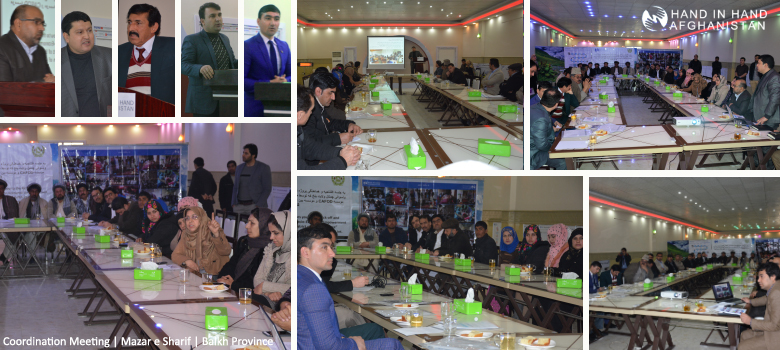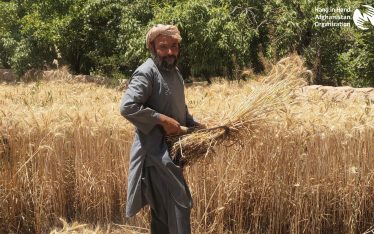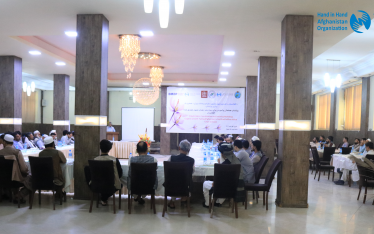OFFICIAL LAUNCH OF SOCIO-ECONOMIC EMPOWERMENT PROJECT
Today 23rd Feb 2017, HiH Af officially launched a new project “Socio-Economic Empowerment of Women and Men in Chimtal District of Balkh Province” it is co-funded by CAFOD and HiH International to mobilize and train 600 poor women and men to start their micro enterprises and create job opportunity for other community members over a period of 2 years.
In this event government officials including, Governor of Chimtal District, Director of Balkh Economy Department, Director of Balkh Labor, Social Affairs, Martyrs and Disabled Department, Representative from Balkh Women Affairs Department, Community Elders, Project staff and project beneficiaries from Chimtal District participated.
The event started with the welcome speech of Mr Nasry the CEO of HiH Af, followed by presentation of Dr. Hekmati Program Manager of HiH Af, he explaining organization’s mission, vision, background and current activities with a focus on the project’s goal and objectives.
Mr. Khwajazada Chimtal District Governor spoke about HiH Af’s past projects, praising the work of HiH Af he said “During my assignment in Kaldar district, I noticed how lives were improved and family incomes were increased with support of HiH Af”. After that Mr. Sharafat thanked HiH Af for its unique approach of reducing poverty through job creation, he further said “micro-enterprises changes lives of vulnerable people in the rural communities”. Also Mr. Matin, the Director of Labor, Social Affairs, Martyrs and Disabled Department of Balkh spoke about importance of job creation at the current situation of Afghanistan, he said many youths are migrating to the neighboring countries and Europe because of high unemployment rate and he emphasized that “HiH Af’s projects creates hope for development at the community level” he further said “our expectations from your projects are high as usual and I believe this project will also produce high quality results as did in other districts”.
The event concluded with a questions and answers session, where Dr. Hekmati answered participant’s questions and noted the recommendations of participants. At the end Mr. Nasry thanked the participants for their active participation, continued support and cooperation.



